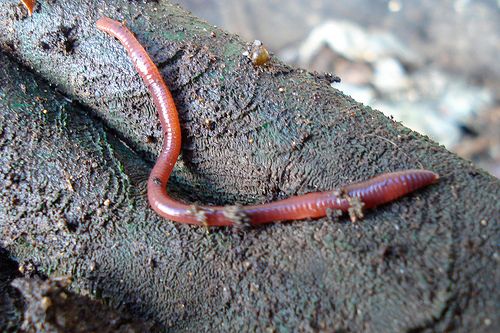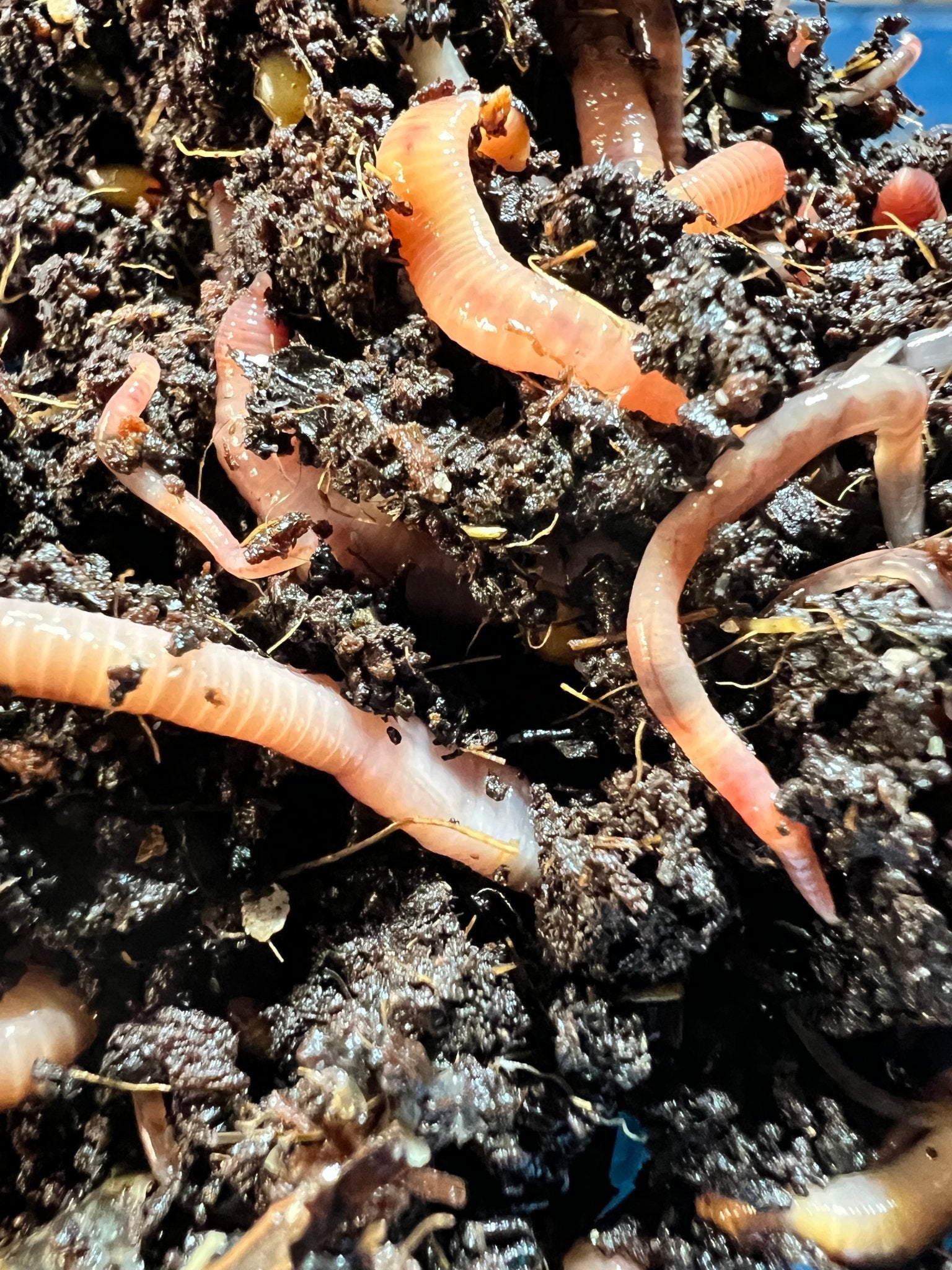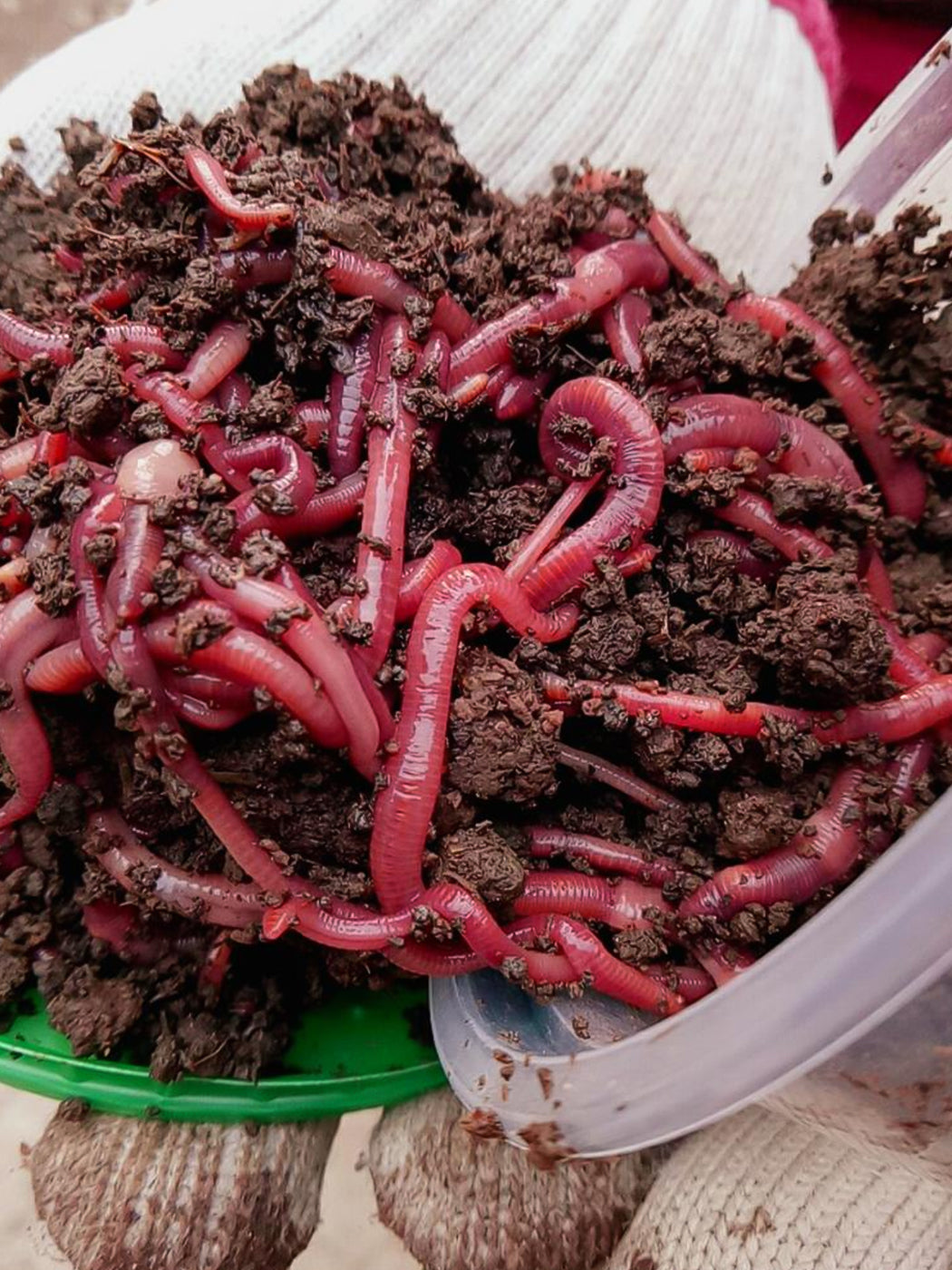Boost Your Fishing Success with Red Wiggler Express Bait Options
Boost Your Fishing Success with Red Wiggler Express Bait Options
Blog Article
Red Wigglers 101: Everything You Need to Know for Thriving Gardens
Red wigglers, or Eisenia fetida, play an essential function in lasting gardening methods, acting as reliable decomposers that transform natural waste right into beneficial vermicompost. Understanding their habitat, nutritional preferences, and the myriad benefits they provide can transform your gardening strategy (Red Wiggler Express). As these worms grow in specific problems, their treatment and monitoring are crucial for optimizing their payments to dirt wellness. The question remains: what actions can you require to harness the complete capacity of these exceptional microorganisms in your own garden?
Understanding Red Wigglers

Red wigglers grow in settings rich in natural material and wetness. Red Wiggler Express. They have a special digestive system that enables them to refine food scraps quickly, eliminating spreadings that are loaded with necessary nutrients such as nitrogen, phosphorus, and potassium. These castings improve soil structure, improve water retention, and foster advantageous microbial activity, all of which add to durable plant health and wellness
In addition, red wigglers can make it through in varied conditions, making them adaptable to different horticulture practices, consisting of interior and outdoor composting systems. Their ability to take in large quantities of natural waste day-to-day positions them as useful allies for both home gardeners and commercial cultivators. By including red wigglers right into gardening efforts, one can dramatically enhance soil fertility and support lasting horticulture techniques.
Perfect Environment for Red Wigglers
Producing an optimum setting for red wigglers is essential for optimizing their composting abilities and general wellness. Red wigglers flourish in damp, dark, and well-aerated habitats, which closely resemble their all-natural environments in leaf trash and rotting raw material. A suitable habitat must supply a temperature range between 55 ° F and 77 ° F(13 ° C to 25 ° C), as severe temperature levels can stress or harm the worms.
The bedding product, such as shredded paper, cardboard, or coconut coir, must be kept damp but not overly damp, as extreme dampness can cause anaerobic conditions detrimental to worm wellness. Additionally, a pH degree between 6.0 and 7.5 is optimal, making sure a well balanced setting.
Appropriate aeration is just as important; it permits oxygen blood circulation and protects against the accumulation of damaging gases. A container or container designed for vermicomposting must have drain holes to remove excess wetness and advertise airflow. Normal tracking of these conditions is necessary for preserving a flourishing red wiggler population, eventually enhancing their effectiveness in damaging down organic waste and improving garden dirt.
Dietary Demands and Preferences

Red wigglers show particular choices; they are especially keen on softer, decomposing materials over tougher or even more fibrous compounds. It is necessary to stay clear of feeding them citrus peels, onion, and garlic in big amounts, as these can be harmful. Furthermore, meat, milk, and oily foods should be excluded, as they can attract insects and produce undesirable smells.
(Red Wiggler Express)To maintain optimum wellness, a balanced mix of environment-friendly and brown products is suggested. Green materials, such as veggie scraps, provide nitrogen, while brownish materials, like cardboard and dried out leaves, supply carbon. Checking the moisture material and guaranteeing a regular food supply will even more improve their development and composting capabilities. By providing to their dietary requirements, garden enthusiasts can foster a flourishing population of red wigglers in their garden compost systems.
Advantages of Using Red Wigglers
The remarkable benefits of using red wigglers in gardening prolong far beyond their role in composting. These functional organisms contribute considerably to soil wellness, boosting vitamins and mineral availability and advertising microbial task. By aerating the dirt as they tunnel, red wigglers boost water drainage and origin penetration, creating an optimal atmosphere for plant development.
In addition, red wigglers are reliable recyclers of natural waste, transforming it right into nutrient-rich spreadings continue reading this that act as an exceptional natural fertilizer. These spreadings have valuable bacteria and vital nutrients, such as nitrogen, phosphorus, and potassium, which are crucial for plant growth. The sluggish release of nutrients from worm spreadings ensures a stable supply, minimizing the risk of nutrient leaching and promoting lasting horticulture practices.
Additionally, the existence of red wigglers can help subdue soil-borne plant illness. Their gastrointestinal processes generate compounds that prevent hazardous virus, therefore boosting plant health. Ultimately, using red wigglers promotes a much more sustainable horticulture approach by minimizing reliance on chemical plant foods and promoting a closed-loop system, where waste is changed into important sources. Generally, including red wigglers into gardening methods supplies a plethora of ecological and agricultural benefits.
(Hickory NC Worms For Sale)
Composting With Red Wigglers

To launch a successful vermicomposting system, select a suitable container with appropriate air flow and water drainage. The ideal atmosphere for red wigglers consists of a wet, dark setup with temperatures between 55 ° F and 77 ° F. Begin by layering shredded paper, cardboard, and food scraps, guaranteeing a well balanced mix of carbon and nitrogen-rich products.
Red wigglers prosper on veggie peels, fruit scraps, coffee premises, and eggshells, while staying clear of meat, dairy products, and oily foods that can bring in pests. Consistently keep an eye on wetness degrees; the bed linen must be wet however not soaked. Harvest worm spreadings every couple of months by separating the worms from the compost, which can then be made use of straight in yards or saved for later usage.
Carrying out vermicomposting not just decreases garbage dump waste however likewise enriches garden soil, advertising healthy plant growth and sustainable horticulture techniques. Embrace this environmentally friendly technique to enhance your gardening undertakings.
Verdict
In recap, red wigglers are essential microorganisms for boosting yard performance with efficient composting. Their certain habitat demands, dietary preferences, and significant advantages contribute to sustainable gardening practices. By making use of red wigglers, gardeners can considerably improve dirt top quality and nutrient schedule, promoting much healthier plant development. Embracing the practice of vermicomposting not just sustains waste reduction however also advertises an eco-friendly equilibrium within garden ecosystems, inevitably resulting in thriving and resilient yards.
Report this page